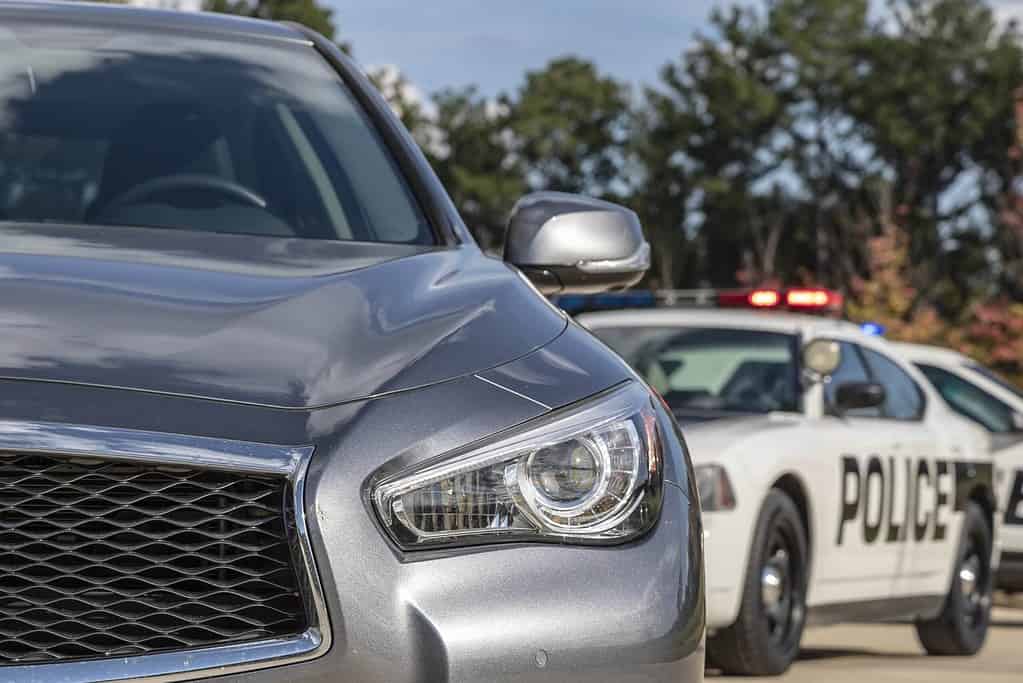The automobile exception to the Fourth Amendment’s warrant requirement is a legal doctrine that allows the police to conduct a warrantless search of a vehicle if they have probable cause to believe that the vehicle contains evidence of a crime or contraband. The U.S. Supreme Court created the automobile exception in the landmark case of Carroll v. United States, 267 U.S. 132 (1925).
Carroll v. United States
Carroll v. United States was a U.S. Supreme Court case decided back in 1925. The case established the “automobile exception” to the Fourth Amendment’s warrant requirement.
In Carroll v. United States, George Carroll was arrested for transporting illegal liquor in his vehicle. The police officers did not have a warrant to search his vehicle, but they did have probable cause to believe that Carroll was transporting contraband. They searched the vehicle and found the illegal liquor.
Carroll argued that the search was illegal because the officers did not have a warrant. However, the Supreme Court ruled in favor of the government and established the “automobile exception” to the warrant requirement. The Court held that vehicles are mobile and can easily be moved out of the jurisdiction, which can lead to the destruction of evidence or the loss of the opportunity to seize contraband. Therefore, law enforcement officers are allowed to conduct a warrantless search of a vehicle if they have probable cause to believe that evidence of a crime or contraband is present.
The Carroll decision has been used as the basis for subsequent cases in which law enforcement officers conducted warrantless searches of vehicles based on probable cause. The automobile exception is still recognized today as a legal doctrine, but it is subject to limitations and requirements to ensure that the search is reasonable and does not violate an individual’s Fourth Amendment rights.
What is the Rationale Behind the Automobile Exception?
The rationale behind the automobile exception to the Fourth Amendment’s warrant requirement is that vehicles are mobile and can be quickly moved out of the jurisdiction or hidden from law enforcement, which can lead to the destruction of evidence or the loss of the opportunity to seize contraband. As a result, police officers are allowed to conduct a warrantless search of a vehicle if they have probable cause to believe that the vehicle contains evidence of a crime or contraband.
In other words, the rationale behind the automobile exception is based on the idea that the mobility of vehicles presents unique challenges to law enforcement’s ability to preserve evidence and conduct effective investigations. Unlike homes, which are stationary and are subject to Fourth Amendment protections against unreasonable searches and seizures, vehicles can be moved quickly and easily. This mobility means that police officers may not have enough time to obtain a warrant before the vehicle is moved or evidence is destroyed, and they may need to conduct a search without a warrant to ensure that the evidence is preserved.
Limitations on the Automobile Exception
Although the automobile exception allows police officers to conduct a warrantless search of a vehicle if they have probable cause to believe that evidence of a crime or contraband is present, the exception is subject to limitations to ensure that the search is reasonable and does not violate an individual’s Fourth Amendment rights. Limitations on the automobile exception include, but are not limited to, the following:
- Scope of the Search: The search must be limited to the areas of the vehicle where the evidence or contraband is likely to be found. Police officers cannot use the automobile exception to search an individual’s person or their home without a warrant or consent.
- Probable Cause Requirement: Police officers must have specific and articulable facts to support their belief that evidence of a crime or contraband is present in the vehicle. The probable cause requirement is a crucial safeguard against arbitrary and unjustified searches.
- Time and Place Limitations: The automobile exception is only applicable when the vehicle is on a public road or in a public place, and the search must be conducted promptly after the probable cause arises. Officers cannot use the automobile exception to search a vehicle parked in a private garage, for example.
- Plain View Doctrine: The plain view doctrine applies to automobile searches, which means that police officers can seize any evidence of a crime that is in plain view during a lawful search. However, police officers cannot manipulate or move objects to bring them into plain view.
Criminal Defense Attorney in Towson, MD
Our criminal defense law firm in Baltimore County, MD has experience defending individuals who were the subject of a police investigation in which the automobile exception applied. Contact our office in Towson, MD today if you or a loved one have been accused of a crime.

